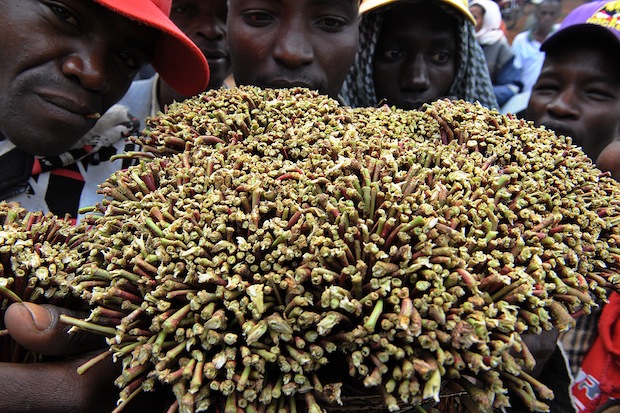Khat is a leafy stimulant chewed mainly, I gather, by Somalis. This week the government banned its possession and sale. And, for the life of me, I cannot figure out why.
Not being a Somali (or, indeed, a Russian murderer, whatever the sketch above might suggest) I can’t pretend that my life will now have a khat-shaped hole in it. Dimly, if I’m honest, I can remember a Swiss German hippy once giving me some leaves to chew on an Indian beach once, but they tasted horrid and I spat them out. So if I have taken khat, ever, it was then.
Generally, I prefer to buy my leafy stimulants in packets of ten or 20 at the corner shop, set fire to them, and lie to my wife. Or, failing that, to stew them up with some hot water, and add some milk. The usual sort of thing. Somalis, though, prefer khat. Apparently you could buy it all over the place if you knew where to look. Ask your Somali friends. I bet you’ve got loads.
According to Karen Bradley, who is a Home Office minister and not, apparently, that glam football lady off The Apprentice, khat has been banned because Britain’s Somali women wanted it to be. ‘They felt that khat was stopping the Somali community from integrating,’ was how she put it, ‘and it was distracting the husbands and sons from getting the education and the jobs that their wives and mothers desperately wanted them to get.’ Which ever so slightly makes you pity the poor sods for not being allowed to drink, either, doesn’t it? Or maybe that’s just me.
Why ban it, though? This is a policy which runs counter to almost everything sensible being done in the field of narcotics almost everywhere else in the world.









Comments
Join the debate for just £1 a month
Be part of the conversation with other Spectator readers by getting your first three months for £3.
UNLOCK ACCESS Just £1 a monthAlready a subscriber? Log in